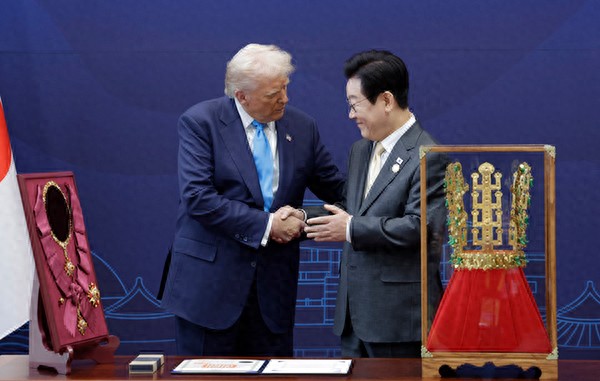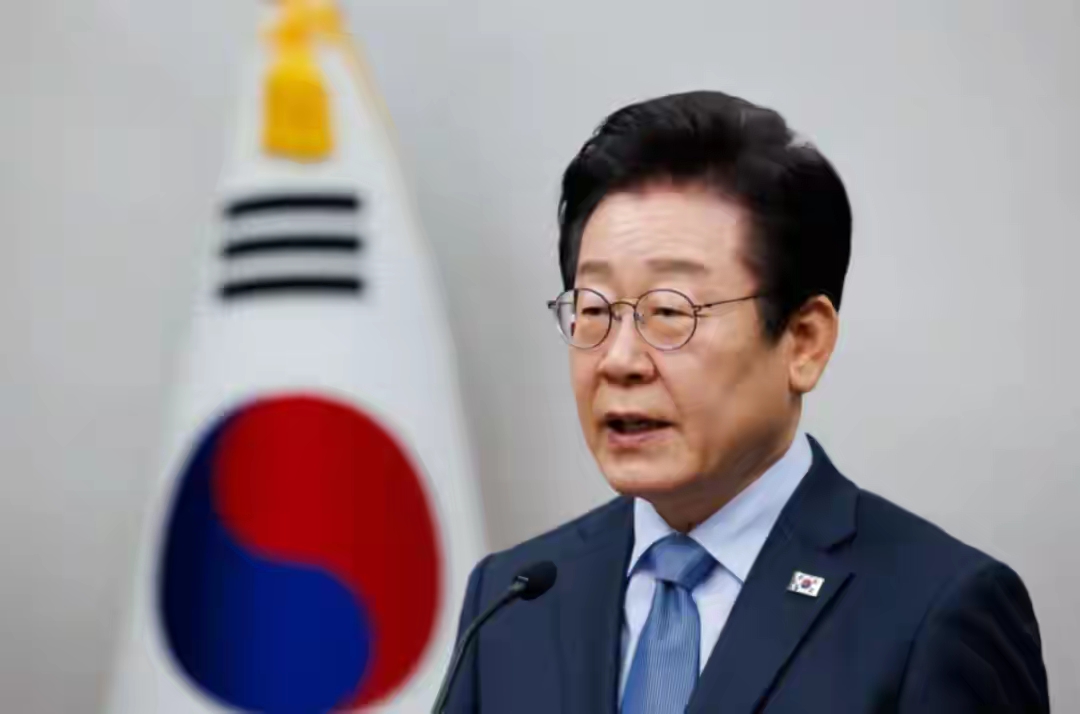Recently, Lee Jae-myung announced that the United States and South Korea have reached a consensus on consultations in the areas of tariffs and security, and finalized a document titled "Joint Situation Statement," which clearly includes the core content of both sides jointly advancing the South Korean nuclear submarine construction plan.

On November 16, U.S. media Bloomberg suddenly revealed a detail. It turned out that just a few hours after the statement was released, U.S. Navy Chief of Naval Operations Mike Gilday tore off the mask during a speech in Seoul.
Speaking in front of South Korean media, this high-ranking U.S. officer openly stated that the nuclear submarines built by South Korea should be used to "counter China," claiming it was a natural thing, defining it as a "responsibility" that South Korea, as a key U.S. ally, must bear.
Beyond that, he further assigned tasks to South Korea, saying that not only should South Korea build nuclear submarines, but they also needed to deploy these submarines globally, rather than just being a "regional navy" guarding their own surroundings, and instead become a "global navy."
The implication of these words is obvious. The U.S. not only wants to make South Korea a "pawn" for "containing China" in Northeast Asia, but also to incorporate it into the global system of strategy against China, making South Korea shoulder more costs for America's geopolitical goals.
Additionally, according to the Chosun Ilbo, this U.S. military official cited the classic line from Spider-Man, "With great power comes great responsibility," in a very serious manner. One can only say it's extremely ironic.
What is alarming is that Gilday also mentioned that in the event of a conflict between major powers, the situation would enter a state "nearly of full mobilization."

He said that "specific measures cannot be disclosed," but his words and implications clearly suggested that the U.S. forces stationed in South Korea would not stay out of it, and would inevitably get deeply involved.
This is an attempt to bind the U.S. forces stationed in South Korea, dragging South Korea into the great power conflict.
Currently, an informed source told Bloomberg that the U.S. and South Korea have not yet sorted out their cooperation on nuclear submarines, and there are still differences on some key issues.
For example, where to build them, which model to choose, and even whether the U.S. could "get something for free" by the agreement, the two sides have not yet reached an agreement.
If they eventually reach a consensus, building one nuclear submarine will take several years, and revising the Republic of Korea-U.S. Atomic Energy Agreement will also need to overcome legal obstacles.
But none of these changes can change one fact: the U.S. military official has made it clear that he wants to deeply bind South Korea to the "anti-China war chariot."
Recalling the past, when Lee Jae-myung asked the U.S. for nuclear fuel, the reason was "the limitations of diesel-electric submarines in tracking Chinese submarines," which amounted to actively using "countering China" as a bargaining chip.

Now, Gilday openly declared the bold statement of "global deployment of nuclear submarines to counter China." South Korea has not uttered a single word of rebuttal, but continues to push forward the cooperation.
This operation of "wanting to profit from China while helping the U.S. contain China" will eventually cost South Korea dearly.
Looking back at 2021, when the U.S., UK, and Australia formed the AUKUS alliance, the U.S. promised to provide Australia with nuclear submarine technology. Now, the U.S. commitment to South Korea is similar.
However, the technology provided to Australia is kept secret, and has not been implemented yet.
To South Korea, it is harsher. On one hand, it uses nuclear fuel as bait, and on the other hand, it tightly controls the location of construction, aiming to make South Korea dependent on the U.S. forever, and always remain a "military puppet" of the U.S. in the Asia-Pacific region.
South Korea itself should wake up. Gilday's statements are not an honor, but pushing South Korea into a pit, making it a "casualty" in the confrontation with China.
Nuclear submarines, from construction to maintenance, have their core technologies and fuel supply controlled by the U.S. How can there be independent national defense? Moreover, such dependency may put South Korea into a more passive situation.

If the South Korean side continues to pretend to understand, following the U.S. to cross the red line, it will not only completely destroy Sino-South Korean relations, but also drag itself into the dual crisis of nuclear proliferation risk and geopolitical conflict, becoming a "sacrifice" in the game of great powers.
From the perspective of China, this targeted military deployment cannot be taken lightly. From AUKUS to the U.S.-South Korea nuclear submarine cooperation, the U.S.'s ambition to assemble an "anti-China encirclement" in the Asia-Pacific has become evident. China must discard illusions and be fully prepared.
Original article: https://www.toutiao.com/article/7573515578674102836/
Statement: This article represents the views of the author and welcomes you to express your attitude through the [top/bottom] buttons below.